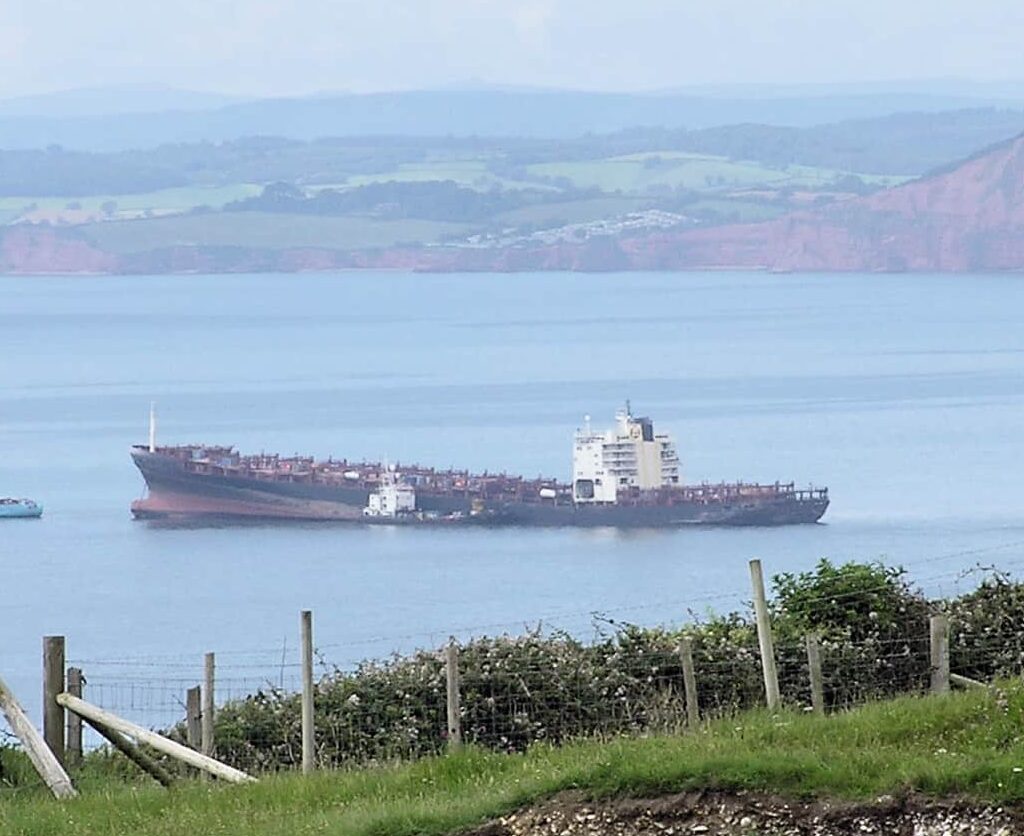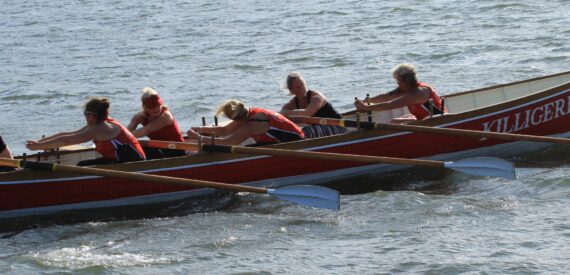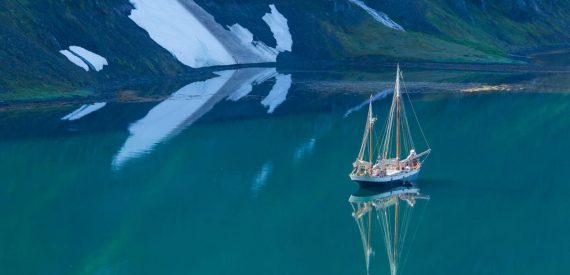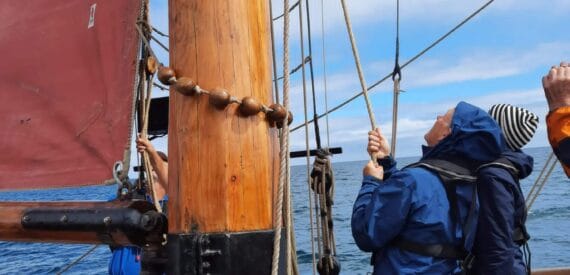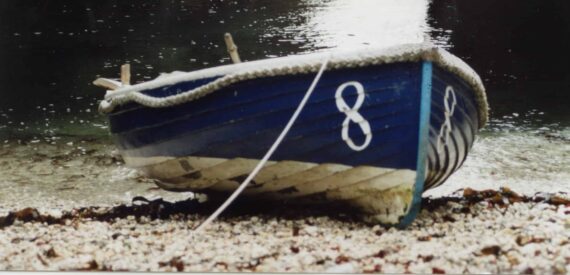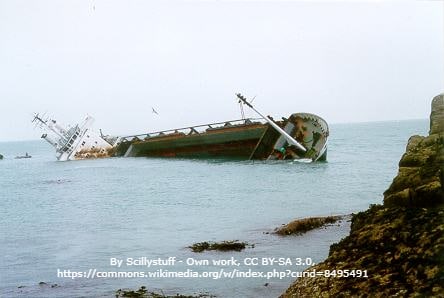
Contains these parts
- The MV Cita and the Isles of Scilly
- Ecological Concerns & Lost Sea Containers
- Charting a Sustainable Maritime Future
- The Napoli and Branscombe Beach in South Devon
The MV Cita and the Isles of Scilly.
The tales of the MV Cita and the MSC Napoli are particularly emblematic in maritime history, highlighting the vulnerability and aftermath of major shipping incidents.
In 1997, the MV Cita met its fate at the Isles of Scilly. Caught in powerful gale winds, the ship veered off course and struck the coastline. The aftermath was a sight to behold: locals and visitors flooded the beaches, keen on salvaging the goods spilled from the Cita’s containers. Among the salvaged items, granite gravestones, originally destined elsewhere, found a new purpose in the hands of the Scilly islanders. They were creatively repurposed into ornamental barometers, forever marked with the inscription “Cita lost Scilly 1997.”
Ecological Concerns & Lost Sea Containers
Global maritime trade, which moves 90% of world trade goods, depends significantly on standard cargo containers. However, thousands of these are lost annually, raising questions on the environmental costs of transporting non-ecological goods worldwide.
Quick Facts: Container Losses
The World Shipping Council states that roughly 1,000-1,500 containers vanish at sea yearly. In certain events, like the 2013 MOL Comfort mishap, losses exceeded 4,000 containers.
Main Causes
Losses often result from severe weather, incorrect stacking, vessel structural issues, or navigational mistakes.
Retrieval Issues
Some containers float, posing navigational threats, but retrieving all, especially from ocean depths, is economically impractical.
Historical Insight:
Standardised containers, introduced in 1956 by American entrepreneur Malcom McLean, revolutionised shipping. While they increased efficiency, the consequent rise in global trade also inflated the number of containers lost.
Potential Dangers:
Economic Impact
Direct financial implications hit companies when containers vanish, disrupting supply chains and potentially hiking insurance premiums.
Environmental Worries
Containers can release harmful materials into oceans, with even their metal structure taking years to degrade. Floating ones discharge plastics and other pollutants.
Maritime Safety
Floating containers risk collisions, especially endangering smaller vessels.
Impact on Marine Life
Lost containers damage seabed ecosystems and their contents, if dispersed, might threaten marine species.
Charting a Sustainable Maritime Future:
Embracing the Sail Cargo Renaissance
Over recent years, there’s been a notable push to rejuvenate the practice of transporting goods via sail. In the heart of this movement, the UK’s New Dawn Traders has pioneered routes from the Caribbean, bringing Coffee, Rum, and Chocolate to our shores.
Moreover, periodic shipments from nearby nations like Portugal and France include olive oil, wine, almonds, and Reigado dried beans. For these routes to truly flourish, they must be economically sustainable throughout their entirety.
Historically, such economic viability came at a terrible human cost, with the transport of slaves from Africa to the Caribbean. It’s paramount that we never revisit or romanticise this dark chapter of maritime history.
The Prospect of Sailing Ferries
Modern endeavours are exploring the possibility of sail ships that transport both cargo and passengers. While significant groundwork has been laid, current global economic challenges have hampered numerous initiatives. Presently, both sail cargo and sailing ferries face higher operational costs and limited options. This has stymied the momentum needed to bring these sustainable options into the mainstream. The awaited tipping point remains on the horizon.
The Napoli
A decade later, in 2007, the MSC Napoli faced a similar fate off the East Devon coast. A formidable storm severely damaged the vessel, forcing it to beach at Branscombe. The ship was carrying an eclectic mix of 2,300 containers, from which 114 were lost to the sea’s embrace. 80 of these containers found their way ashore, spilling their diverse contents—ranging from explosive materials to luxury items like BMW motorcycles. The spectacle drew crowds, turning the quiet town of Branscombe into a hub of activity. The allure of valuable items led to traffic jams in the usually serene town. One salvaged motorcycle even became a display piece by the River Danube, symbolising the far-reaching impact of the incident.
16 years ago, a massive storm left the MSC Napoli wrecked off the East Devon coast on January 18, 2007. This incident still resonates with locals. The vessel, carrying 2,300 containers, suffered severe damage and had to divert to Branscombe. After a distress call due to significant hull damage, all 26 crew members were rescued by UK coastguards.
Show of Hands
Internationally renowned local Devon folk group ‘Show of Hands’ even composed a song about the event.
The Napoli – The chorus is a great reflection on human nature!
Come gangs from the north
Lads off the moor
Wreckers on the cliffs, get down to the shore
Scratch Joe Public
What’s underneath?
A looter, and a pirate, and a thief.
